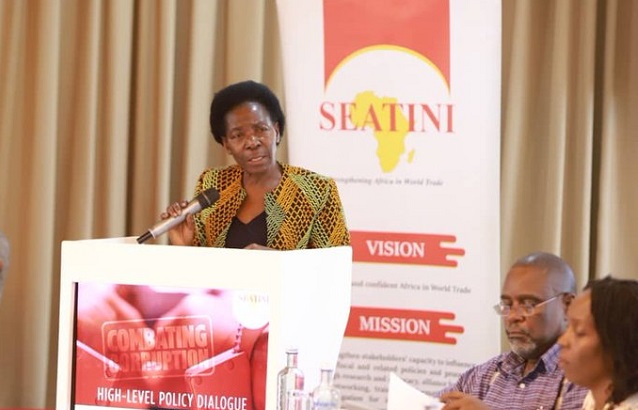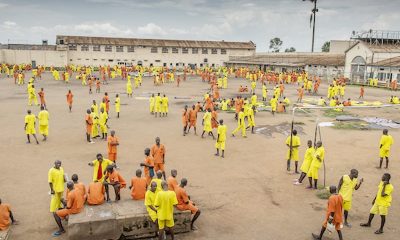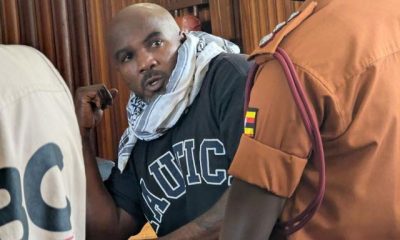News
Corruption is enemy number one to development
As Africa commemorated the African Anti-Corruption Day on July 11 under the theme “Promoting Human Dignity in the Fight Against Corruption”, stakeholders in Uganda have raised alarm over the country’s persistent corruption crisis, urging the government to adopt more effective and ethical approaches to curb the vice that continues to cost the nation up to Shs 10 trillion annually.
Despite Uganda having strong institutional frameworks and numerous reforms, experts warn that corruption remains deeply entrenched in government institutions.
Speaking at a high-level policy dialogue convened by SEATINI Uganda under the Tax Justice Africa Chapter, former legislator and governance campaigner Stephen Birahwa Mukitale challenged the government to recentralize procurement of high-value contracts to reduce abuse at the local government and agency levels.
“We’ve built institutions, passed laws, and automated systems, yet corruption persists because the people managing these systems lack integrity. Without ethical conduct, no amount of technology or legislation will end this,” said Mukitale, who also serves on the Executive Board of the National Planning Authority.
He argued that the amount Uganda loses to corruption is equal to what the country seeks annually in foreign aid, pointing out that if financial leakages were sealed, Uganda could significantly reduce external borrowing.
Uganda’s national debt is projected to reach Shs 116 trillion (approx. USD 31.5 billion) by the end of the 2025/26 fiscal year. However, Mukitale cautioned that this figure does not reflect the full scale of Uganda’s indebtedness, as it excludes debts accrued through public-private partnerships (PPPs), particularly in sectors like oil and gas.
He cited the Kabalega International Airport in Hoima as an example of a non-operational asset whose loan repayments have already begun, underscoring the dangers of poor planning and politically driven borrowing.
SEATINI Uganda Executive Director Jane Nalunga echoed these concerns, saying that corruption and reckless debt acquisition are starving the country of resources meant for basic social services like health, education, and clean water.
“Dignity doesn’t mean wealth — it means ensuring access to quality public services. But corruption denies people that dignity,” Nalunga said, calling for citizen-led anti-corruption efforts.
During the dialogue, Joel Wanjala, Under Secretary at the Directorate of Ethics and Integrity, acknowledged that corruption has become Uganda’s main enemy and that the problem lies not in the absence of systems, but in the lack of ethical leadership.
“People without integrity will always find a way to beat the system. Ethical values must be embedded across all levels of leadership — from MPs to civil servants,” Wanjala stressed.
But legislators themselves pointed fingers at the political establishment. Joseph Sewungu, MP for Kalungu County West, accused the government of deliberately weakening oversight institutions, including Parliament, to shield high-level corruption.
“The Public Finance Management Act is a strong law, but it’s rendered toothless by corrupt practices within the regime and Parliament. Loans are approved and later misused with little accountability,” he said.
Catherine Natukunda, a Senior Procurement Officer at the Public Procurement and Disposal of Public Assets Authority (PPDA), said the contract implementation phase is the most vulnerable to corruption.
“We’re seeing unjustified variations in contracts, delayed payments, and interference with right-of-way processes. PPDA is now enforcing prior approval for all variations before implementation begins,” she revealed.
Stakeholders at the event unanimously agreed that Uganda must move from institutional presence to institutional performance — where systems work not only on paper, but in practice, with leaders who embody integrity and public interest.
They called for the recentralization of high-value procurement, better debt governance, and citizen empowerment, noting that tackling corruption is key to achieving national development targets and restoring dignity to Ugandan citizens.
“It’s not the absence of policy. It’s the absence of will, values, and accountability,” said Nalunga. “Until we address that, corruption will remain our biggest development tax.”
Comments



























